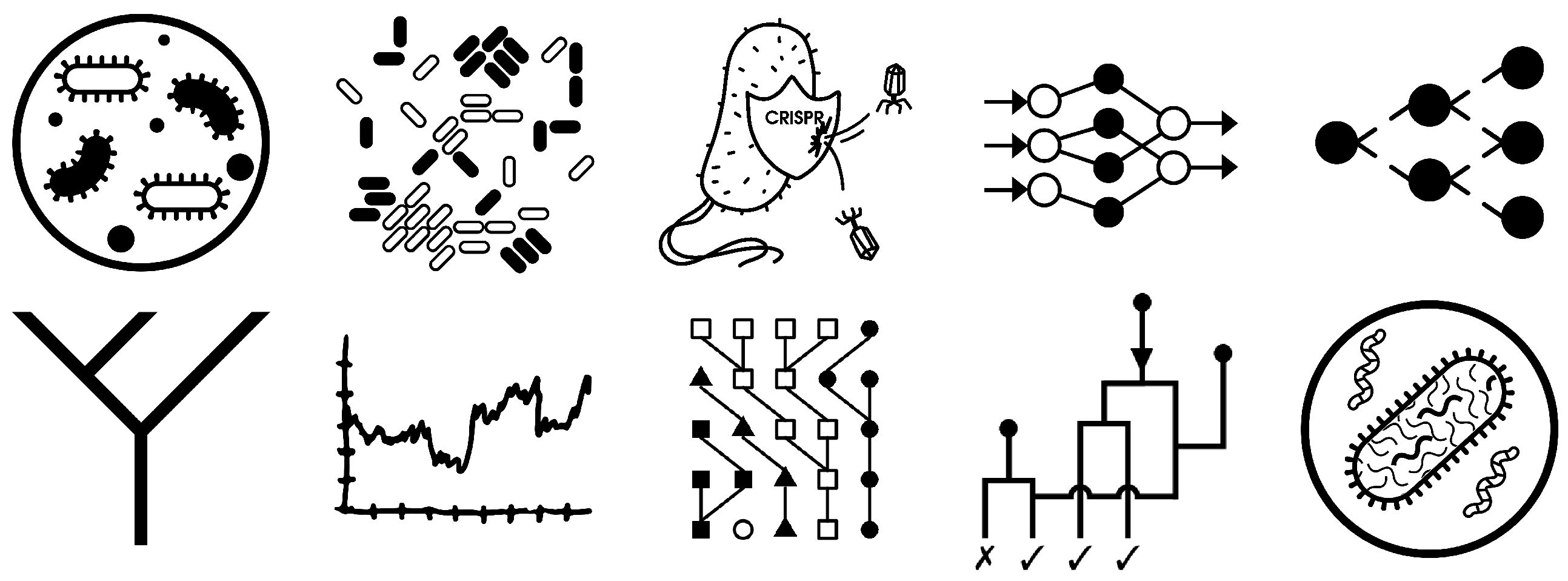Postdoc (or PhD) position
We are seeking a motivated Postdoc for joining our Research Group for Mathematical and Computational Population Genetics, at the University of Tübingen. If you are interested in mathematical and/or computational approaches to model and understand microbial evolution or would like to learn about it, this is your opportunity.
Your contribution will make a significant difference in our young and agile research group.
The research of the group is primarily focused on mathematical and computational approaches to explain microbial evolution. We are part of two Clusters of Excellence in Tübingen, namely the Clusters "Controlling Microbes to Fight Infections" and "Machine Learning in Science". Thus there are plenty of opportunities to collaborate across various disciplines. The work spans collaborations with biologists to mathematicians. The group is currently set up and you can play a major role in the development of this group.
Our research projects are usually inspired by observations in microbial genome data that are related to evolutionary questions. From there we try to identify the main forces responsible for the observed dynamics and create a model as complex as necessary, but as simple as possible. Therefore we rely on population genetics, diffusion theory, phylogenetics approaches, and other tools that are based on stochastic processes. Subsequently, often the goal is to come back to the data and to obtain applicable computational approaches for the biological data using the theoretical result. Therefore we implement inference, estimation, and analysis tools using phylogenetics, simulations, and machine learning approaches to analyze human and prokaryotic genome data.
In addition to his very own projects, the PostDoc is offered the opportunity to co-supervise suitable Ph.D. projects within the group.
You can join our group with theoretical as well as computational backgrounds. Mathematicians, Bioinformaticians, and Computational Biologists, and related fields are considered.
Examples of some of the issues that we are interested in furthering include (depending on the methodological background):
-
Effective simulation of gene transfer in the pan-genome of microbial populations
-
CRISPR spacer distributions in microbial communities
-
Analyze branching processes that describe the benefit of HGT mediated gene gains
-
Investigate the evolution of evolutionary rates under fluctuating selection using diffusion theory and/or simulations
-
Bet hedging, Dormancy, Gene Loss, and other strategies in microbial communities
-
Create machine learning tools for population genetics
If you are not as keen on the topics above as we are, but would still like to join the group, please get in touch with us anyway. We might have further funding resources and topics that might suit you. In this case, the main topic of the project can be developed together in a discussion with the candidate.
The best time to start would be autumn 2021, but the starting date is flexible and a remote start is also possible. The position comes without any formal teaching duties and can initially last for two years with possible extension.
Further details and the official job announcement can be found on the CMFI website.

